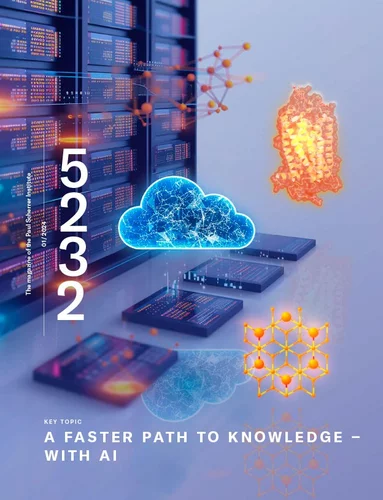Copenhagen Atomics, a Danish molten salt reactor developer, and the Paul Scherrer Institute PSI, Switzerland’s largest research institute for natural and engineering sciences, have signed a large-scale experimental collaboration agreement.
The Danish developer of molten salt reactors Copenhagen Atomics and the Paul Scherrer Institute PSI have entered into a collaboration agreement on a thorium molten salt critical experiment. The purpose of this experiment is to validate the technology and provide valuable experience for the collaboration partners in the design, construction, licensing, operation, and decommissioning of the new molten salt reactor technology as well as to collect data for commercial deployment, and with open source data for validation of reactor modelling tools.
We’re very excited to work on advancing molten salt reactor technology together with PSI, who come with world-class expertise, experience, and facilities to conduct large-scale nuclear experimental work.
Personally, I am very glad that Copenhagen Atomics has decided to work with PSI as a collaboration partner to prove the feasibility of their vision here at our institute.
The collaboration agreement runs initially for four years and will position Europe at the forefront of advanced reactors.
About the Partners
Paul Scherrer Institute
PSI is the largest research institute for natural and engineering sciences in Switzerland, conducting cutting-edge research in four main fields: future technologies, energy and climate, health innovation and fundamentals of nature. PSI develops, builds and operates complex large research facilities and is Switzerland’s centre of excellence in nuclear energy research and safety. It operates a unique infrastructure, namely the Hot Laboratory well equipped for work and research on radioactive material. Based on its facilities and know-how on nuclear safety, future reactor concepts, related fuel cycles and nuclear waste treatment, PSI is looking forward to a valuable collaboration with Copenhagen Atomics.
Copenhagen Atomics has been developing its molten salt reactor technology for close to a decade and has now matured the technology to the point where thorium molten salt critical experimental testing is needed. Copenhagen Atomics is already producing and testing full-scale test reactor prototypes at their headquarters in Copenhagen along with dozens of smaller-scale loop tests and salt production. Copenhagen Atomics’ molten salt reactors use lithium, thorium and low-enriched uranium fluoride salt as the reactor fuel and can be factory manufactured in modules the size of a 40ft shipping container, with the long-term goal of making commercial thorium molten salt breeder reactors, with an LCOE electricity price of $20 / MWh.
Text: Copenhagen Atomics / Paul Scherrer Institute PSI
© PSI provides image and/or video material free of charge for media coverage of the content of the above text. Use of this material for other purposes is not permitted. This also includes the transfer of the image and video material into databases as well as sale by third parties.
Contact
About PSI
The Paul Scherrer Institute PSI develops, builds and operates large, complex research facilities and makes them available to the national and international research community. The institute's own key research priorities are in the fields of future technologies, energy and climate, health innovation and fundamentals of nature. PSI is committed to the training of future generations. Therefore about one quarter of our staff are post-docs, post-graduates or apprentices. Altogether PSI employs 2300 people, thus being the largest research institute in Switzerland. The annual budget amounts to approximately CHF 460 million. PSI is part of the ETH Domain, with the other members being the two Swiss Federal Institutes of Technology, ETH Zurich and EPFL Lausanne, as well as Eawag (Swiss Federal Institute of Aquatic Science and Technology), Empa (Swiss Federal Laboratories for Materials Science and Technology) and WSL (Swiss Federal Institute for Forest, Snow and Landscape Research). (Last updated in June 2024)




